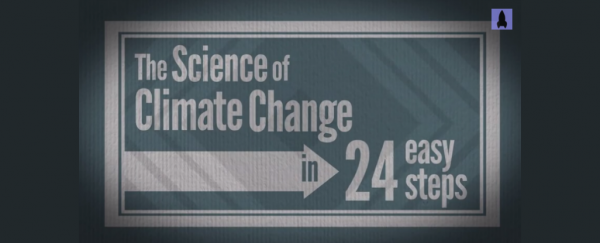Don't let anybody fool you - climate change is happening, and we're the cause. The scientific evidence is overwhelming. "Scientists usually reserve this level of agreement for claims like, "Earth is a planet" and "air is real", yet here we are," says Joe Hanson in the latest episode of It's Okay To Be Smart. "The climate change ship has now left the dock, yet lots of people on shore are still debating whether boats can actually float."
And when Joe says lots, he means it. A Pew study from back in January found that only 61 percent of Americans think that climate change is actually happening, and even worse - only 40 percent believe that it's caused by human behaviour. That means the majority of Americans, even if they do believe in climate change, don't think there's anything we can, or should, be doing to mitigate that. Because it's not our fault, they think.
A study released by the Australian Climate Institute last year found that among Coalition voters who believe climate change is occurring, only 24 percent are convinced that humans are mainly responsible. This is slightly higher among ALP voters at 38 percent, and higher still with Greens, voters at 55 percent. "The overall average of Australians who hold this view is 32 percent," the report concludes.
So chances are, someone you know is a climate change denier. You might get into a heated discussion about it, and find that getting your point across can sometimes be difficult, particularly if you're trying to convince someone who's already made up their mind, insisting that they're smarter and more informed than all those naive 'sheeple' out there. So to help you out, It's Okay To Be Smart has put together a guide called 'The Science of Climate Change in 24 Easy Steps." It's a great run-down of the basic knowledge you need to effectively counter the most common climate change denier arguments.
But don't be discouraged if your dinner table debate doesn't go as well as you think it should, based on the fact that you have 97 of published climate research accepts that it's real. Phil Plait explains why over at Grist:
"Studies have shown that presenting the facts by themselves doesn't usually work to change a person's mind, especially if those beliefs are ideologically based. Worse, in some cases it can make them dig in. That's one reason I generally don't engage with deniers and such on social media (also, they typically aren't interested in a real discussion anyway). But I think at the very least the facts need to be out there, and hopefully the information here will help."
Source: It's Okay To Be Smart
